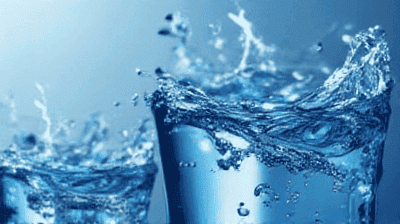
Water is fundamental to life, making up about 60 percent of the human body. It plays critical roles in various physiological functions, including temperature regulation, nutrient transport, waste elimination, and overall cellular function. Despite its importance, many people remain uncertain about how much water they actually need for optimal health.
The Importance of Hydration
Why Water is Essential
Water is involved in nearly every bodily process. Its importance can be summarized in the following key roles:
Temperature Regulation: Sweating is one of the body’s primary mechanisms for regulating temperature. When the body heats up, sweat evaporates from the skin, which cools the body down. Adequate hydration ensures this process can occur efficiently.
Nutrient Transport: Water serves as a medium for transporting nutrients to cells and removing waste products from the body. It dissolves minerals and nutrients, making them accessible for absorption.
Joint Lubrication: Water helps maintain the elasticity and lubrication of joints, thereby reducing friction and preventing injuries during physical activity.
Cellular Function: Every cell in the body requires water to function effectively. Water aids in biochemical reactions, synthesizing proteins, and maintaining cell structure.
Digestive Health: Adequate hydration supports digestion by facilitating the breakdown of food and the movement of waste through the gastrointestinal tract.
Cognitive Function: Hydration is crucial for maintaining cognitive performance. Even mild dehydration can lead to impairments in attention, memory, and mood.
Health Benefits of Proper Hydration
Research indicates a plethora of health benefits associated with proper hydration, including:
Improved Physical Performance: Maintaining hydration levels is essential for optimal physical performance, particularly during exercise. Dehydration can lead to fatigue, decreased endurance, and increased risk of injury.
Weight Management: Drinking water can promote a feeling of fullness, aiding in weight management. Some studies suggest that replacing sugary beverages with water can help reduce calorie intake.
Enhanced Skin Health: Adequate hydration can improve skin elasticity, hydration, and overall appearance, leading to healthier-looking skin.
Kidney Function: The kidneys play a crucial role in filtering waste and regulating fluid balance. Consuming enough water helps kidneys function properly, reducing the risk of kidney stones and urinary tract infections.
Mood Regulation: Hydration is linked to mood stability. Studies have shown that even mild dehydration can lead to increased feelings of anxiety and irritability.
How Much Water Do You Really Need?

General Recommendations
The commonly cited guideline for daily water intake is approximately eight 8-ounce glasses, or about 2 liters (half a gallon) of water per day. This is often referred to as the "8x8 rule." However, individual water needs can vary significantly based on several factors.
Institute of Medicine Recommendations: According to the Institute of Medicine, the adequate intake for total water is about 3.7 liters (125 ounces) for men and 2.7 liters (91 ounces) for women per day. This includes all beverages and food sources of water.
Dietary Sources of Water: It is essential to note that not all of our daily water intake comes from drinking. Foods such as fruits and vegetables contain high water content and contribute to overall hydration. For example, cucumbers, watermelon, and oranges can significantly boost water intake.
Factors Influencing Hydration Needs
Several factors can affect an individual’s hydration needs:
Age: As people age, their sense of thirst may diminish, leading to an increased risk of dehydration. Older adults may need to be more proactive about drinking water.
Activity Level: Individuals who engage in regular exercise or intense physical activity will require more water to replace fluids lost through sweat.
Climate and Environment: Hot and humid weather increases fluid loss through sweating, necessitating higher water intake. Similarly, high altitudes can lead to increased urination and respiratory fluid loss.
Health Status: Certain medical conditions, such as fever, vomiting, diarrhea, and urinary tract infections, can lead to increased fluid loss, necessitating additional hydration. Moreover, pregnancy and breastfeeding require increased fluid intake to support maternal and infant health.
Diet: High-salt and high-protein diets can increase the need for water. Conversely, diets rich in fruits and vegetables typically provide additional hydration.
Assessing Hydration Status
Signs of Dehydration
Understanding the signs of dehydration is essential for maintaining adequate hydration. Common symptoms include:
Thirst: The most obvious signal of dehydration is an increased sense of thirst. This is the body's mechanism for signaling that water intake needs to be replenished.
Dry Mouth and Throat: Reduced saliva production can lead to a dry mouth and throat, indicating the need for hydration.
Fatigue: Dehydration can lead to feelings of tiredness and decreased energy levels, impacting overall well-being and performance.
Dark Urine: One of the most reliable indicators of hydration status is urine color. Dark yellow or amber urine suggests dehydration, while pale straw-colored urine indicates adequate hydration.
Dizziness and Confusion: Severe dehydration can lead to neurological symptoms, including dizziness, confusion, and even fainting.
Hydration Monitoring Techniques
Urine Color Chart: Using a urine color chart can help individuals assess their hydration status quickly. Aim for light yellow urine as a sign of optimal hydration.
Daily Water Intake Tracking: Keeping a journal or using apps to track daily water intake can help ensure that hydration goals are met.
Thirst Level Assessment: Regularly assessing thirst levels can serve as a personal indicator of hydration needs. Aim to drink water before feelings of thirst become pronounced.
The Role of Electrolytes in Hydration

Understanding Electrolytes
Electrolytes are minerals in the body that carry an electric charge and are crucial for many bodily functions. They include sodium, potassium, calcium, magnesium, and chloride. Electrolytes help regulate:
Fluid Balance: Electrolytes maintain the osmotic balance in cells, ensuring that fluids are distributed properly throughout the body.
Nerve Function: Electrolytes are vital for transmitting electrical signals in nerve cells, which is essential for muscle contractions and brain function.
Muscle Function: Proper electrolyte balance is necessary for muscle contraction and relaxation, and imbalances can lead to muscle cramps or spasms.
Hydration Sources for Electrolytes
Maintaining proper electrolyte balance is essential for optimal hydration, especially during prolonged physical activity. Here are some ways to incorporate electrolytes into your hydration routine:
Electrolyte Drinks: Sports drinks contain electrolytes and carbohydrates, making them suitable for hydration during intense exercise. However, watch for added sugars.
Coconut Water: A natural source of electrolytes, coconut water is low in calories and rich in potassium, making it an excellent hydrating beverage.
Fruits and Vegetables: Many fruits and vegetables are rich in electrolytes. Bananas are high in potassium, while spinach and avocados provide magnesium and calcium.
Salt in Diet: For those engaging in prolonged exercise or sweating profusely, incorporating a small amount of salt into meals can help maintain sodium balance.
Hydration for Special Populations
Athletes and Active Individuals
Athletes have unique hydration needs due to increased fluid loss during exercise. It is essential to develop a personalized hydration plan based on the type, intensity, and duration of activity:
Pre-Exercise Hydration: Aim to drink water or electrolyte-rich beverages before physical activity to ensure optimal hydration levels.
Intra-Exercise Hydration: For activities lasting longer than one hour, consider consuming electrolyte drinks to replenish lost sodium and maintain hydration.
Post-Exercise Recovery: Rehydrate after exercise with water and food sources rich in electrolytes to help restore balance.
Pregnant and Breastfeeding Women
Hydration is particularly crucial for pregnant and breastfeeding women for several reasons:
Increased Fluid Needs: Pregnant women need additional fluids to support the growing fetus and maintain amniotic fluid levels.
Breastfeeding: Nursing mothers require increased hydration to produce breast milk. The recommendation is to drink adequate fluids before, during, and after nursing sessions.
Signs of Dehydration: Pregnant and breastfeeding women should be vigilant for signs of dehydration and ensure they are meeting their fluid needs.
Myths and Misconceptions About Hydration

Myth 1: You Must Drink Eight Glasses of Water Daily
While the "8x8 rule" provides a general guideline, individual hydration needs vary based on factors such as activity level, diet, and climate. It is essential to listen to your body's cues and adjust fluid intake accordingly.
Myth 2: Coffee and Tea Dehydrate You
While caffeinated beverages may have a mild diuretic effect, research suggests that moderate caffeine consumption does not significantly contribute to dehydration. In fact, these beverages can still contribute to overall fluid intake.
Myth 3: You Only Need Water When You're Thirsty
Thirst is a key indicator of hydration needs, but relying solely on thirst can lead to underhydration, especially in older adults or those engaged in strenuous activities. It is advisable to drink water regularly throughout the day, regardless of thirst.
Practical Tips for Staying Hydrated
Carry a Water Bottle: Keep a reusable water bottle with you throughout the day to encourage regular sipping.
Set Reminders: Use phone apps or alarms to remind you to drink water at regular intervals.
Flavor Your Water: If plain water is unappealing, try adding slices of fruits, vegetables, or herbs to infuse flavor and encourage consumption.
Incorporate Hydrating Foods: Include water-rich foods, such as fruits and vegetables, in your diet to enhance hydration.
Monitor Your Urine: Regularly check the color of your urine as a simple indicator of hydration status.
Conclusion
Understanding the science of hydration is essential for maintaining optimal health and well-being. Water is vital for countless bodily functions, and ensuring adequate intake is crucial for physical and mental performance. While general guidelines exist, individual hydration needs can vary significantly based on various factors. By listening to your body, monitoring hydration status, and implementing practical hydration strategies, you can ensure that you are meeting your water needs for a healthier, more active life.








